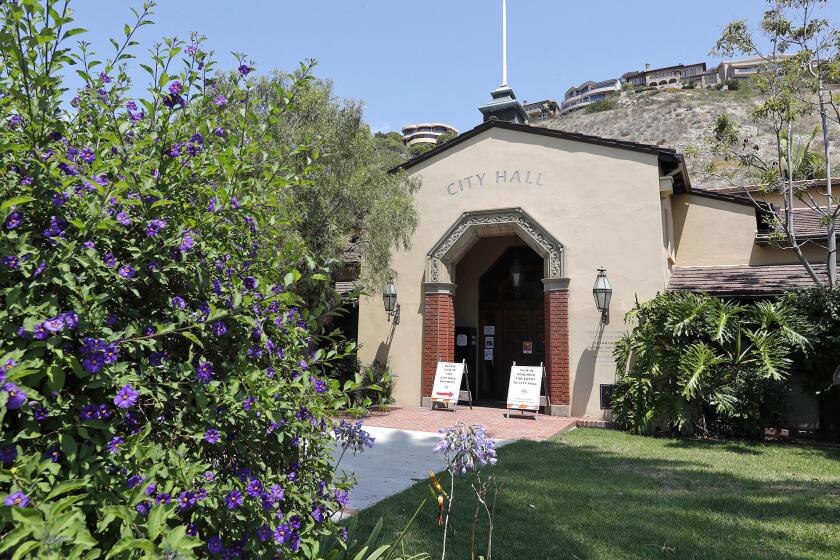EDITORIAL:
- Share via
When the debate is between new development or preserving open space, it’s only natural that the public will prefer the latter.
That’s because in a world dominated by concrete and traffic, the last thing we want is more, well, concrete and traffic. Hence the current row brewing over the fate of Banning Ranch, a 400-acre chunk of undeveloped land that straddles Costa Mesa and the northwestern portion of Newport Beach.
Banning Ranch Development LLC wants to build a hotel, retail stores and some 1,400 homes on the site.
Neighbors and environmentalists want the land preserved as open space.
So what’s the answer? While preserving the land is certainly a nice dream, actually making that happen has historically been difficult to achieve.
Not so many years ago, Newport residents were given a similar choice: Buy the land around the Upper Newport Bay from the Irvine Co., and keep it undeveloped always.
That proposal, made in a difficult economic climate, was squashed at the ballot box and the Irvine Co. went on to develop much of the land. That’s not to say an effort shouldn’t be made to preserve Banning Ranch. But it’s easier to dream than come up with funding to offer fair market value for the property.
We think it would be more prudent for local residents and environmentalists to seek a compromise.
We agree that adding nearly 1,400 new homes, a hotel and shopping venues would bring dramatic traffic increases to an area that already suffers from a large influx of cars and out-of-town visitors. But we also agree that developers and landowners have a powerful argument against critics of such developments — property rights.
Still, often what developers propose and what they get are different things. Just look at the Bolsa Chica development in Huntington Beach.
Bolsa Chica once was slated for nearly 5,000 homes, hotels and a marina. Instead, most of the land has reverted back to the state, the wetlands are undergoing restoration and plans for homes number in the hundreds. Clearly, compromises can happen.
So we urge city officials, residents and the landowners to work for balance. Preserve as much open space as possible while planning for responsible and reasonable growth for the future.
In the end, everyone might not be happy, but the more everyone’s concerns are addressed, the closer we can get to that balance.
All the latest on Orange County from Orange County.
Get our free TimesOC newsletter.
You may occasionally receive promotional content from the Daily Pilot.









